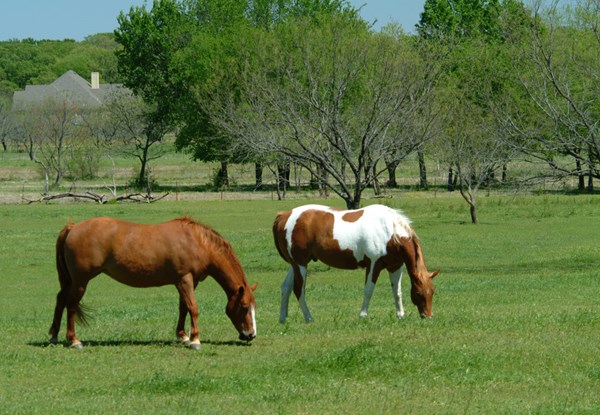 Credit: Thinkstock An international group of researchers reported that yeast supplementation increased feed intake and nutrient digestibility in mares fed high-fiber diets.
Credit: Thinkstock An international group of researchers reported that yeast supplementation increased feed intake and nutrient digestibility in mares fed high-fiber diets.Studies show that dietary supplementation with yeast has multiple positive health effects in horses and foals. Supplementation with the yeast Saccharomyces cerevisiae, for example, improves colostrum quality, enhances digestion, helps horses cope with sudden changes in diet, and could impact the growth of foals.
Previous research in this field also focused on the benefits of yeast for horses offered low-fiber and high-starch diets. More recently, an international group of researchers* reported that yeast supplementation increased feed intake and nutrient digestibility in mares fed high-fiber diets.
“In that study, a high-fiber diet was selected because even horses fed high-fiber diets could benefit from improved nutrient utilization. This is particularly true for horses classified as ‘hard to keep’ or needing extra energy from access to poorer quality forage,” explained Kathleen Crandell, PhD, a Kentucky Equine Research (KER) nutritionist.
To demonstrate the benefits of yeast on horses fed high-fiber diets, Salem and colleagues fed 16 Quarter Horses one of four diets: a control diet designed to meet the nutrient requirements of horses based on National Research Council guidelines; or one treatment diet that was supplemented with one of three commercial supplements containing Saccharomyces cerevisiae (Biocell F53, Procreatin 7, and Biosaf SC47). All diets were otherwise equivalent.
“While all of the yeast supplements improved digestibility of fiber and protein over the control diet, the most important finding was that the addition of 11 g Biocell F53 per day to the diet resulted in higher feed intake and digestibility for all the nutrients they looked at,” summarized Crandell.
The study authors also found:
- Feed intakes and digestion were higher in mares supplemented with Biocell F53 without any adverse consequences on health than the other two supplements. That difference could be related to the nature and number of the yeast and supplement quality;
- No effect on the shedding of fecal Escherichia coli was noted, which is in contrast to previous findings. Higher levels of E. coli are thought to contribute to hindgut acidosis. Therefore, decreasing E. coli by yeast supplementation improves gastrointestinal health; and
- Higher gas production by Biocell F53 was also noted, which is thought to be beneficial for horses because improved gas production, including methane, is an indicator of improved fermentation and feed digestion.
*Salem, A.Z.M., M.M.Y. Elghandour, A.E. Kholif, et al. The effect of feeding horses a high fiber diet with or without live yeast cultures supplementation on feed intake, nutrient digestion, blood chemistries, fecal coliform count and in vitro fecal fermentation. Journal of Equine Veterinary Science. In Press.
Visit equinews.com/newsletters to subscribe to The Weekly Feed, KER’s award-winning equine nutrition newsletter.


